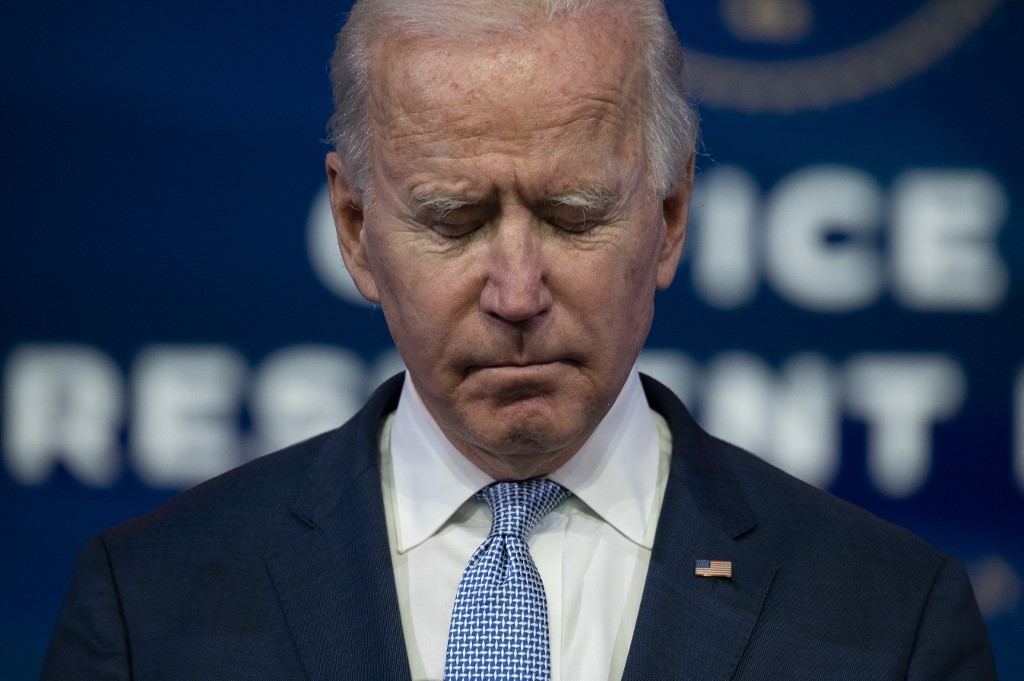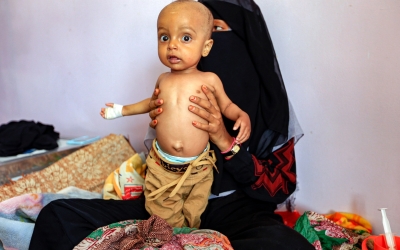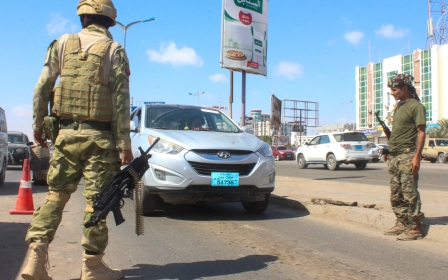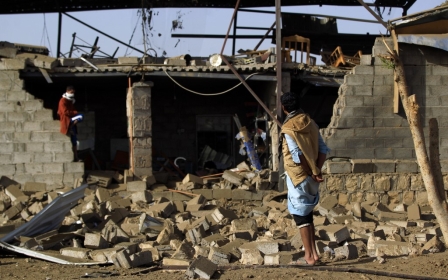Biden faces calls to reverse labelling of Yemen's Houthis as terrorists

US President-elect Joe Biden is facing calls from lawmakers and humanitarian groups to reverse the Trump administration's decision to designate Yemen's Houthi rebels as a foreign terrorist organisation (FTO).
Senator Chris Murphy, a Democrat from Connecticut, slammed Sunday's announcement by Secretary of State Mike Pompeo - calling it "short-sighted" and "a death sentence" for millions of Yemenis reeling from years of war.
"It will cut off humanitarian aid, make peace talks nearly impossible, and empower Iran. Biden should reverse this policy on day one," Murphy said on Twitter on Monday.
Congressman Gregory Meeks, chair of the House Foreign Affairs Committee, also denounced the designation and said it "endangers the lives of the Yemeni people".
"The Trump Administration has yet to learn that they can't sanction their way out of a civil war," Meeks said in a statement.
New MEE newsletter: Jerusalem Dispatch
Sign up to get the latest insights and analysis on Israel-Palestine, alongside Turkey Unpacked and other MEE newsletters
'This decision is a devastating blow to the prospects of peace and a reckless instigation of further suffering in what is already the world's largest humanitarian crisis'
- Win Without War
Pompeo announced late on Sunday that he intended to notify Congress of the Trump administration's decision to list the Houthis as an FTO, and added that he plans to blacklist three Houthi leaders - Abdul Malik al-Houthi, Abd al-Khaliq Badr al-Din al-Houthi, and Abdullah Yahya al-Hakim - as Specially Designated Global Terrorists (SDGT).
The State Department said the decision was made to crack down on Iranian influence in Yemen, with Washington seeing the Houthi group as being backed by Tehran. The Islamic Republic denies that it provides material support to the Houthis.
Yemen has endured years of chaos since the Houthis seized the capital Sanaa in late 2014 and forced President Abd-Rabbu Mansour Hadi to seek refuge in Aden, and then later Saudi Arabia.
The kingdom and its allies intervened in the country's civil war in March 2015, and have since carried out more than 20,000 air strikes in an effort to roll back the rebels, with one-third striking non-military sites, including schools, factories and hospitals, according to the Yemen Data Project.
The protracted conflict has triggered what the UN calls the "world's worst humanitarian crisis", with roughly 24 million people forced to rely on aid while 10 million are near famine.
While Trump has vetoed multiple congressional efforts to end the US support for Yemen, Biden has repeatedly said he plans on ending Washington's assistance to the Saudi-led coalition.
A day-one priority for Biden
Sunday's announcement was the latest in a series of decisions taken in the waning moments of the Trump presidency that will have large implications for the incoming Biden administration.
The designation will now move to Congress, which has until 19 January to block it, one day before Biden's inauguration.
Scott Paul, Oxfam America's humanitarian policy lead, called on Biden to reverse the designation immediately upon entering office, calling the policy counterproductive to peace efforts.
"Every day these designations remain in place will compound the suffering of Yemen's most vulnerable families. We call on President-elect Biden to revoke them immediately upon taking office," Paul said in a statement.
"In this instance, acting 'on day one' cannot be only a figure of speech, as lives hang in the balance."
In his statement, Pompeo acknowledged concerns over the designation's impact on foreign aid to the country, where the Houthis control large amounts of territory including the port city of Hodeidah, and said the State Department plans "to put in place measures to reduce their impact on certain humanitarian activity and imports into Yemen".
These measures include granting special licences to allow humanitarian groups and official activities under the UN to go unprohibited.
Still, the UN warned on Monday that the plan was "likely to have serious humanitarian and political repercussions".
In a press briefing, UN spokesman Stephen Dujarric said the international body was "concerned that the designation may have a detrimental impact on efforts to resume the political process in Yemen, as well as to polarise even more the positions of the parties to the conflict".
The same concerns have been shared by Win Without war, a grassroots organisation advocating a progressive national security policy, who have said the designation "is nothing more than a cynical, last-ditch attempt to prevent the Biden administration from reversing Trump’s disastrous Yemen and Iran policies".
"This decision is a devastating blow to the prospects of peace and a reckless instigation of further suffering in what is already the world’s largest humanitarian crisis," it said in a statement.
"Perhaps most importantly, however, designating the Houthis will only further restrict already-insufficient flows of humanitarian aid to a country that is experiencing overlapping famines and medical crises."
Middle East Eye delivers independent and unrivalled coverage and analysis of the Middle East, North Africa and beyond. To learn more about republishing this content and the associated fees, please fill out this form. More about MEE can be found here.





